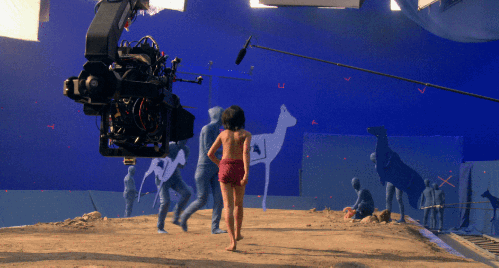Technology
TASK: Read and make notes on the following article.
https://www.awn.com/animationworld/jon-favreau-looks-back-jungle-book
JB16 is the result of cutting edge CGI – the animals were created digitally post-production and the one actor in the film (playing Mowgli) acted against a blue screen.
TASK: Read and make notes on the following article.
http://uk.businessinsider.com/the-jungle-book-without-cgi-2016-4/#all-of-the-jungles-animal-inhabitants-were-created-in-post-production-9
TASK: Watch the following video on CGI animation.
The Jungle Book CGI
On the set, scenes for The Jungle Book were first filmed using motion capture. ‘We motion-captured the entire movie before we filmed anything and we cut the whole film together,’ says Favreau. Using that footage, the effects team then built the film’s sets virtually, a process known as pre-visualisation (previz). ‘Everything was mapped against the virtual sets. We designed the sets like you would for a video game.’
TASK: Read and make notes from the following article.
(http://www.wired.co.uk/article/jungle-book-jon-favreau-disney-film)
The CGI was mostly created by MPC. Their website includes an excellent exposition of how the effects were created http://www.moving-picture.com/film/filmography/the-jungle-book/
The VFX won both the BAFTA and Academy Award. The new film opens and closes using analogue techniques, however, referencing the original film: https://youtu.be/aZOUWQ6ioxc
Both the 1967 and 2016 versions worked in Technicolor. This is a useful account of the integral working relationship and production process:
http://thefuturetrust.technicolor.com/article/the-future-of-storytelling/success-of-the-jungle-book-stems-from-harnessing-talent-and-technology-in-service-of-the-storyteller/
